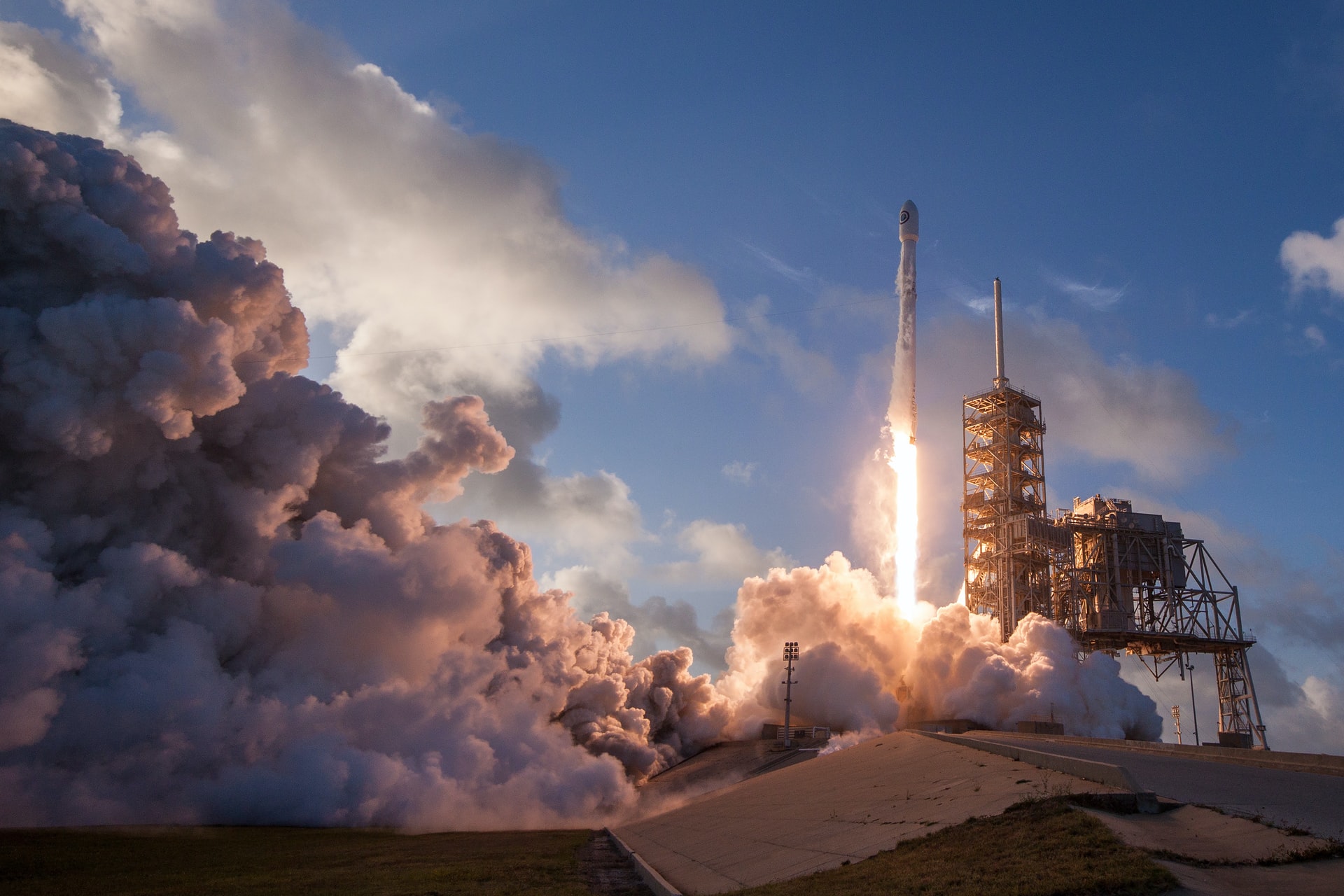Thessaloniki gets ready for its metro launch in November
The underground rapid transit lines have been under construction for almost two decades due to various project delays
 TheMayor.EU logo
TheMayor.EU logo Luxembourg boasts steady economic growth and stable political institutions
“Silicon Valley'' is the label of a well-known southern San Francisco Bay area in California where all the world's tech giants such as Google and Facebook have set up their bases. In general, more and more “Silicon Valley'' tech start-ups demonstrate a diversity of industries. Smart solutions, such as artificial intelligence or autonomous vehicles facilitate the lives of societies unquestionably.
Today, European venture investments have already reached EUR 43.8 billion in value, according to CNBC data. Big cities of Europe, such as London, Stockholm, or Munich are the centres of highly developed economies. However, the wealthiest partof the Benelux region, Luxembourg, has demonstrated commendable progress in business digitalization.
According to Startupheatmap, from 2018 to 2019 this small country’s tech ecosystem funding has quadrupled. The Grand Duchy has often been facing challenges such as its small size, lack of natural resources, and landlocked geographical location. Yet, these days, the following question arises: is Luxembourg becoming the Silicon Valley of Europe?
Located at the heart of Europe and between Germany, France, and Belgium, Luxembourg boasts stable economic, political and social environments suitable for the growth of start-ups. One of the most important drivers for innovation is diversity and the Grand Duchy is something of an expert in embracing this.
The majority of its inhabitants are foreigners and most speak four languages – as a result one could speak of the presence of diverse business orientation. At present, approximately 500 start-up communities have already set up shop in the country.
Luxembourg also promotes itself as a forward-looking nation defined by the active cooperation between stakeholders and government bodies. Recently financed by the Ministry of the Economy, the Luxembourg start-up portal has been launched to level up the digital economy.
Also, the fact that the University of Luxembourg ranked 12 in the Times Higher Education (THE) Young University Rankings 2018, creates resources for many companies to retain the multilingual speakers' talent pool. The country has also been ranked as the second most sustainable in the world by the 2020 Environmental Performance Index.
All of the above is an indication that Luxembourg is more than willing to develop as a sustainable nation. Additionally, the pro-business environment offers simple access and valid resources to decision-makers, such as investors or public authorities, to expand the tech entrepreneurship scene.

Luxembourg has plans to become the most trusted data economy market within the European Union by 2023
For a long time, Luxembourg has been a global financial leader and it is now also a centre for fintech and data-driven businesses. The Grand Duchy has plans to become the most trusted data economy market within the European Union by 2023.
Luxembourg’s ICT infrastructure such as data centres, connectivity and, most importantly, cybersecurity are regarded as high-end. Therefore, these reliable data processing capacities provide a suitable medium for e-commerce and e-payment companies to prosper.
To give an example, big players such as Amazon, Paypal and Rakuten have chosen Luxembourg as their European headquarters. Also, this country’s human resources are replete with PhD graduates and ICT specialists, a fact that boosts the long-term strategies of the fintech sector. In other words, large companies, SMEs and start-ups have opportunities for the development of digital skills of their staff.
 Big players such as Amazon, Paypal and Rakuten have chosen Luxembourg as their headquarters‘ base in Europe
Big players such as Amazon, Paypal and Rakuten have chosen Luxembourg as their headquarters‘ base in Europe
Space ambitions have been declared in Luxembourg since the 2016 launch of SpaceResources.lu – making Luxembourg the first to adopt long-term space resources. The country endeavours to attract companies and talents that will develop a robust ecosystem for the space sector.
It is important to mention that to captivate young professionals is not a simple mission. However, Luxembourg strives to create a versatile community of space pioneers, including companies and citizens. Consequently, around 50 aerospace players are flourishing with different ideas.
In general, what has changed about this industry is that the sector has become increasingly privatized. It has created conditions for more innovation and venture capital to flow in. Today, Luxembourg can offer not only support for funding and research resources but also a network of international contacts.
 The country endeavours to attract companies and talents that will develop a robust ecosystem for the space sector
The country endeavours to attract companies and talents that will develop a robust ecosystem for the space sector
One of the key formulas for a thriving technologies ecosystem is to embrace openness and easy exchange of ideas. It is not only about sharing, but is also about networking and cooperating to actively complement each side of the value supply.
Despite its small size, Luxembourg has been demonstrating strong technological and digitalization achievements in the past years. When juxtaposed to strong European technology hub spots, such as London or Berlin, Luxembourg’s efforts and initiatives appear even more impressive.
The country’s economy has been growing steadily and the political system prioritizes disruptive initiatives. Local and international talents can get high-quality education at the University of Luxembourg and grow within the national ecosystem.
Data-driven solutions and especially fintech players have already settled in the Grand Duchy. Aerospace and satellite communications create a distinguished sector that furthers scientific expansion.
Overall, the question of Luxembourg becoming a new “Silicon Valley” is more dependent on time and niche exploration. As it has been pointed out, the country has all the strategic capabilities to provide tech start-up funding and digitalization opportunities for SMEs and large companies.
If you want to keep up with how European cities and regions are changing, follow us on Facebook, Twitter and Instagram.

The underground rapid transit lines have been under construction for almost two decades due to various project delays

Now you can get your wine in Talence by paying directly in Bitcoin

That’s because the state has to spend money on updating the railway infrastructure rather than subsidizing the cost of the popular pass

Rethinking renewable energy sources for the urban landscape

The examples, compiled by Beyond Fossil Fuels, can inform and inspire communities and entrepreneurs that still feel trepidation at the prospect of energy transition

Now you can get your wine in Talence by paying directly in Bitcoin

The 10th European Conference on Sustainable Cities and Towns (ESCT) sets the stage for stronger cooperation between the EU, national and local level to fast track Europe's transition to climate neutrality.

At least, that’s the promise made by the mayor of Paris, Anne Hidalgo

The underground rapid transit lines have been under construction for almost two decades due to various project delays

At least, that’s the promise made by the mayor of Paris, Anne Hidalgo

Hostal de Pinós is located in the geographical centre of the autonomous region

Despite its church-y name, the district has long been known as the hangout spot for the artsy crowds

Urban dwellers across the EU are having a say in making their surroundings friendlier to people and the environment.

Forests in the EU can help green the European construction industry and bolster a continent-wide push for architectural improvements.

Apply by 10 November and do your part for the transformation of European public spaces

An interview with the Mayor of a Polish city that seeks to reinvent itself

An interview with the newly elected ICLEI President and Mayor of Malmö

A conversation with the Mayor of Lisbon about the spirit and dimensions of innovation present in the Portuguese capital














